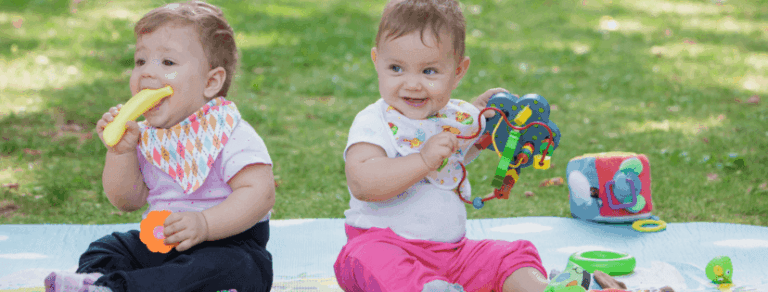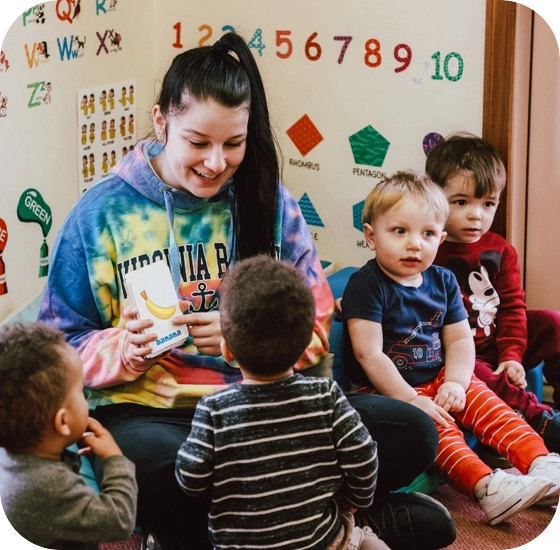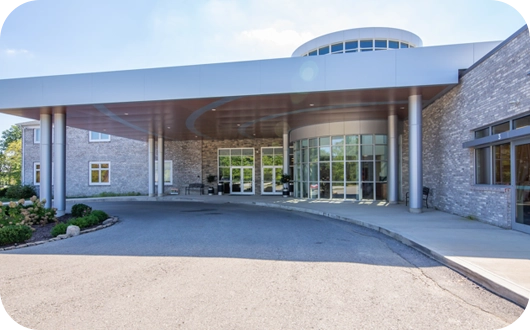Transitioning to preschool can be an overwhelming and exciting process for parents and children alike. This phase is often filled with mixed emotions, as children leave the familiarity of home and enter a new environment. As parents embark on this journey, they have a plethora of details to consider, including their child’s level of school readiness.
Being ready to attend school for the first time is about more than just academics. It also involves children’s social-emotional development, readiness to learn, and physical abilities. You can help your child make a successful transition to school by following these school readiness tips!
1. Help Children Develop Self-regulation Skills Through Games And Activities
Children who are able to effectively manage their own emotions and behavior tend to be more ready to start attending school. You can help your child develop these skills with fun games and activities at home, such as “Simon Says” or “Red Light, Green Light”. These types of games teach children how to listen and follow directions while also helping them develop self-control.
2. Establish A Bedtime Routine And Stick To It
A good night’s sleep is essential for growing kids, especially when it comes time for them to go to school. Children who get enough rest each night tend to be more alert and attentive in class. Establishing a consistent bedtime routine can help ensure that your child gets enough sleep each night. Some tips to help you create a bedtime routine in your home include reading stories together, having bath time, brushing your teeth, and winding down with calming activities (like puzzles or coloring).
3. Promote Independence
One of the most important school readiness skills for young children is independence. Children who can do things for themselves tend to be more confident in school. You can help your little one become more independent By having your child perform simple tasks, such as getting dressed, helping with breakfast, and packing snacks. Let children start to tackle simple things for themselves too. For example, if youngsters can put on their own shoes, this will save you time in the morning when it’s time to head out the door each day.
4. Encourage Positive Social Interactions
Another key skill when it comes to school readiness is socialization. Children who are comfortable interacting with others tend to have an easier time adjusting to school. You can help children develop positive social skills by exposing them to a variety of social situations, such as playdates, birthday parties, or going to the park. Consider setting up playdates with children of different ages to help your child learn how to interact with different age groups.
5. Foster A Love Of Learning
School readiness skills are not just limited to academic growth. Children who enjoy learning to tend to be more successful in school. You can help foster a love of learning in children by exposing them to a variety of educational activities, such as reading, science experiments, and art projects. You can also find fun online quizzes and puzzles that provide fun and challenging exercises for your little one.
6. Encourage Learning By Reading Together
Reading with your child every day is one of the best ways to promote school readiness. Reading helps children develop language skills, which are important for school success. Additionally, reading enriches imagination and creativity, which allows children to think outside of the box. Make the most out of this quality time by snuggling up together on your child’s bed or on the couch as you read books with silly characters or familiar scenes.
7. Participate In Developmentally Appropriate Activities
Activities that match your child’s developmental abilities can also help when it comes to being ready for school. For example, toddlers can benefit from simple activities such as puzzles, coloring, and listening to stories. Preschoolers can engage in more complex activities, like learning letters and numbers, practicing handwriting, and playing educational games. Older children can participate in activities such as completing homework assignments, taking practice tests, and discussing school-related topics with you.
8. Talk To Your Child About School
The more we talk to our children about what school will be like, the more prepared they will be when the first day arrives. Start by discussing what a typical school day is like. Talk about the things your child will do each day, like learning new things, playing with friends, and eating lunch. Explain that a school is a place where children learn new things while having fun!
Each child has their own unique strengths and weaknesses. The earlier you help your child become ready for the transition to school, the better. Follow these school readiness tips and help prepare your child for a positive school experience!
If you’re looking for the perfect place for your little one, Carepointe Academy is the best choice. At Carepointe Academy, you can enjoy the confidence of knowing your child is in a safe, loving, Christian-based learning environment with talented and caring educators.







